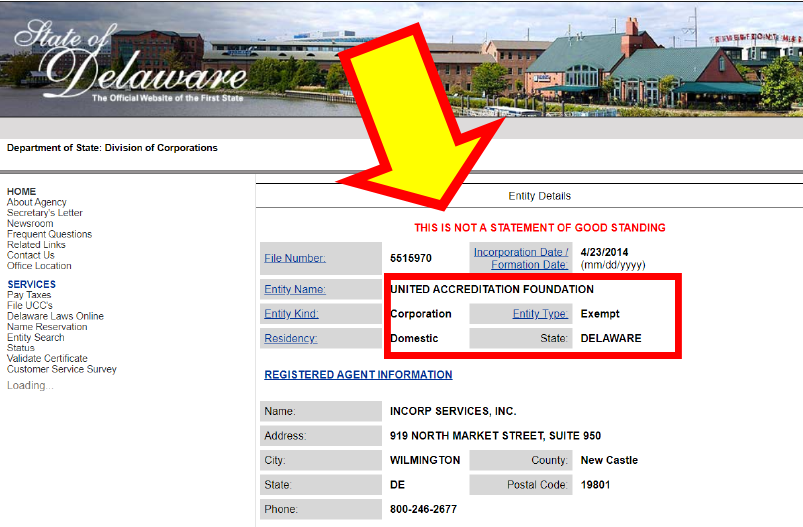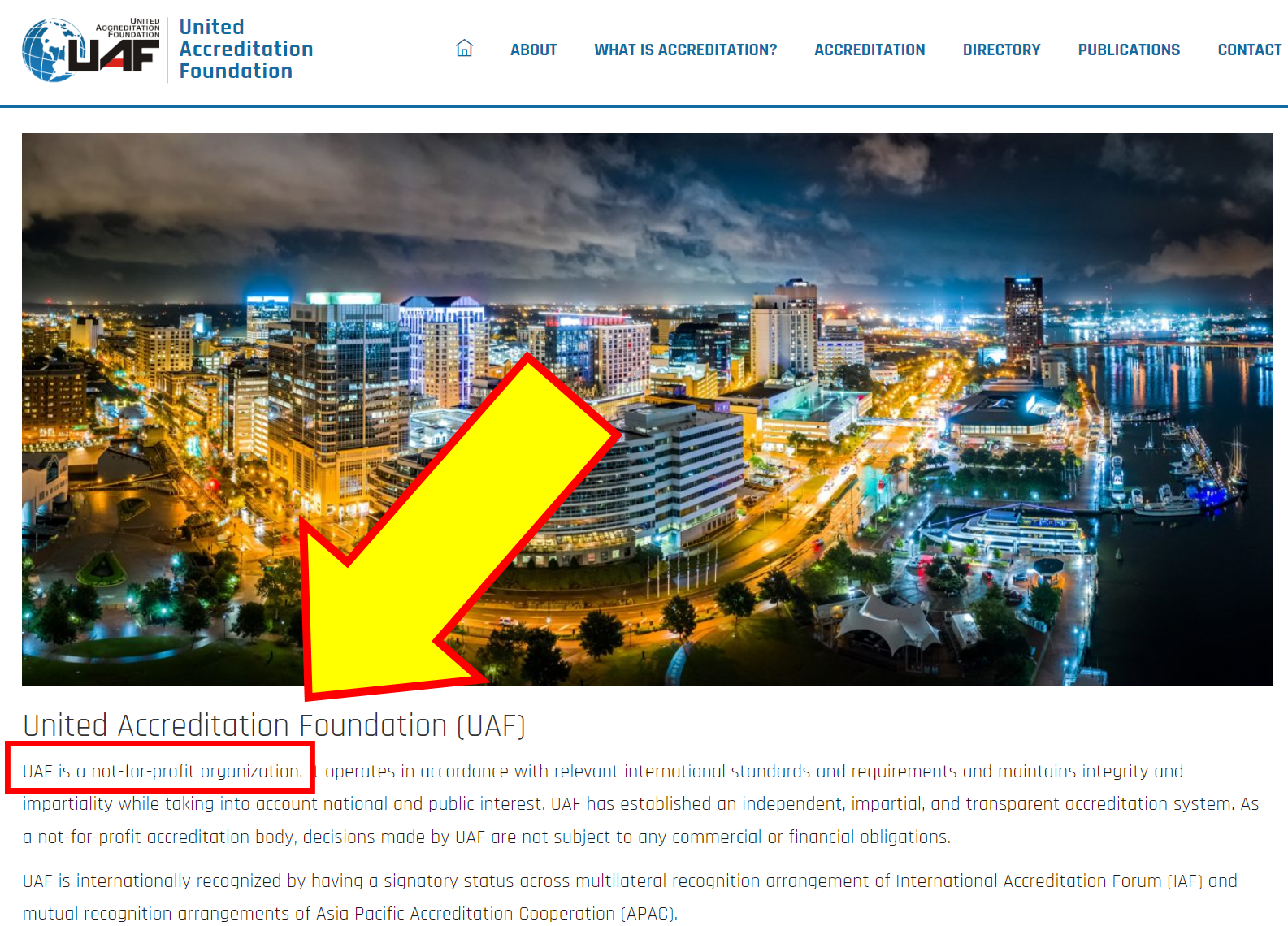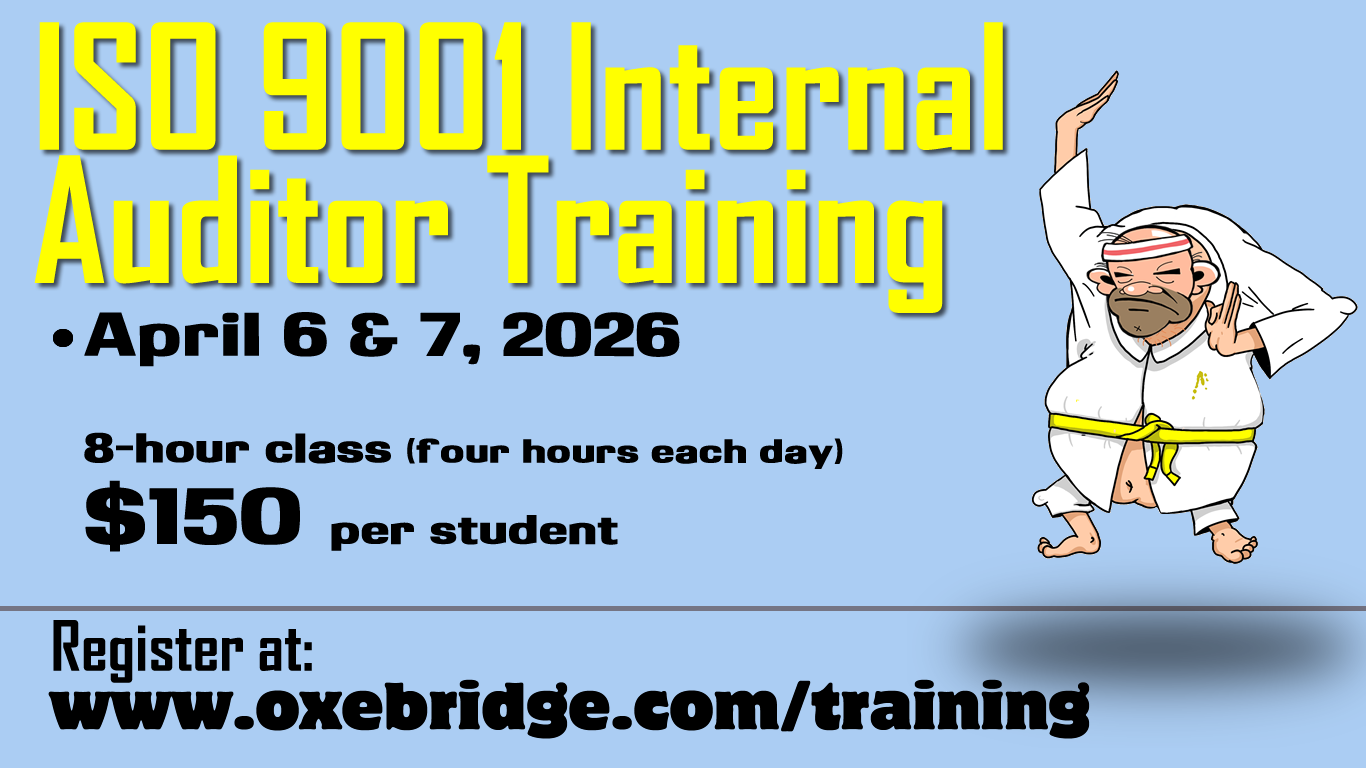The accreditation body United Accreditation Forum has ignored demands to produce legally required documents proving its US “not-for-profit” status.
For over ten years, the UAF has claimed in its marketing and business filings that it is a US-based not-for-profit. However a search of IRS records fails to show any Form 990 or other filings for the company, suggesting the claims are false. Under US law, not-for-profit 501(c)(3) and other type organizations must file their Form 9001 and then make it publicly available upon demand. Furthermore, the annual tax filings for such companies are then public records.
Searches on public repositories such as GuideStar and Nonprofit Explorer show no filings at all for the UAF, despite being registered in Delaware as an “exempt” entity.
If the UAF generated any revenue in the United States, and failed to pay taxes on it due to falsely claiming 501(c)(3) or similar status, this would constitute felony tax fraud.


The UAF is actually operated out of India by a former certificate mill operator, Parveen Sadana, and has been embroiled in scandal since its beginning. Sadana used the address of US-based physician Tejwant Chandhi to claim a US address when marketing his services overseas as a US company. Sadana and Chandhi then used a variety of fake names and fictitious persons to make UAF appear to have an actual staff, when the phone calls and complaints were actually responded to by Chandhi’s son, Jobin Singh. Singh refused to provide his real name, only referring to himself as “Joe,” and was only identified after Oxebridge utilized a private detective service and open source investigations.
When a complaint was filed with UAF against one of its accredited certification body clients, UAF closed the matter without investigation after only 45 minutes, in violation of ISO 17011.
UAF went on to accredit a host of Indian-based scammers and former certificate mills, while Sadana pursued full IAF membership through its regional body, APAC. APAC director Graeme Drake delayed the proper processing of complaints filed against UAF for over a year while he allowed UAF to complete the necessary paperwork to become an APAC member. Drake then silently awarded UAF full APAC membership, putting it under the IAF without regard to the complaints.
The IAF simply accepts on faith the members put forward to it by APAC, and does not perform any independent vetting.
To date, multiple international complaints hint at a pattern of fraud on the part of UAF that has been repeatedly ignored by the entire IAF oversight structure.
Recently, Sadana took a role with the new accreditation body cabal NAAF and was seen posing next to officials from actual US accreditation bodies such as ANAB and A2LA.
The rise of UAF suggests that so long as payments are made to bodies such as APAC and NAAF, the oversight bodies will provide “protection” to the applicants even in cases where fraud and illegal activities are alleged. This runs counter to the pledges and bylaws made by such organizations, which allege to uphold accreditation bodies such as UAF to ISO 17011 and applicable statutory and regulatory requirements.
Despite claiming a presence in the US, it does not appear that UAF has any US-based staff at all, and Sadana continues to represent the company nearly single-handedly from India. Nearly all of UAF’s accredited CBs are from India and the Middle East.
Formal complaints have been filed with the Delaware Secretary of State and US Internal Revenue Service (IRS) to investigate UAF for tax fraud.
The refusal to respond to the request now allows Oxebrige to escalate the matter to APAC, but given that oversight body’s actions to date, it is not expected to process the matter.







